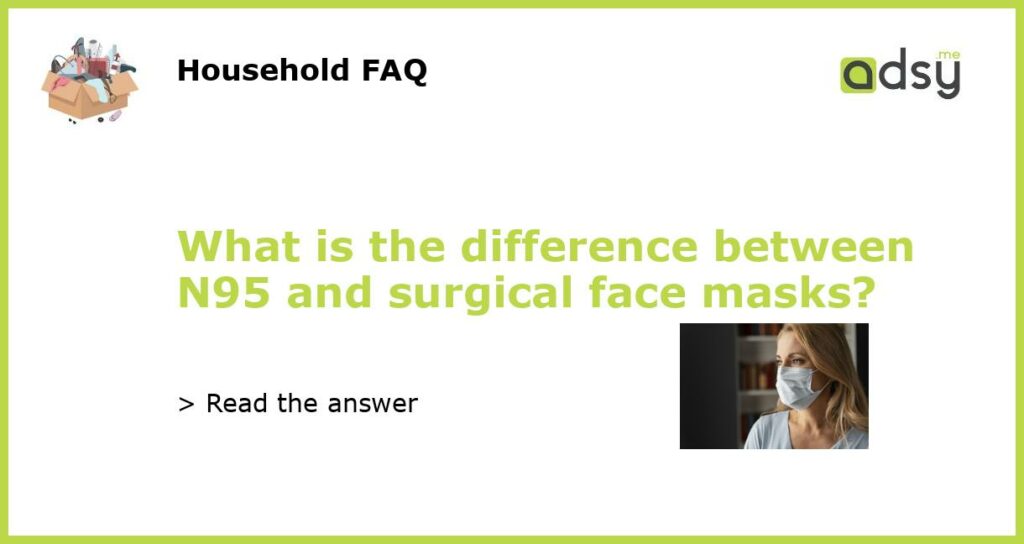Difference Between N95 and Surgical Face Masks
In the era of COVID-19, face masks are essential for protecting ourselves and others from the virus. However, there are many types of masks available in the market and it can be confusing to choose one. Two commonly used masks are N95 and surgical face masks. While they may look similar, they serve different purposes. In this article, we will explain the difference between N95 and surgical face masks.
N95 Masks
N95 masks are a type of respirator mask that filters out 95% of airborne particles, including viruses and bacteria. They are considered the gold standard for personal protective equipment and are used by healthcare workers in high-risk areas like emergency rooms and intensive care units. The N95 mask is designed to create a tight seal around the user’s face and is made of multiple layers of synthetic material that filters particles as small as 0.3 microns.
Surgical Face Masks
Surgical face masks, on the other hand, are designed to protect others from the wearer’s respiratory droplets. They are loose-fitting masks that cover the user’s nose and mouth and are made of three layers of non-woven fabric. Surgical masks are commonly used in healthcare settings to prevent the spread of infection by healthcare workers who are coughing or sneezing.
Differences Between N95 and Surgical Face Masks
The main difference between N95 and surgical face masks is their filtration capabilities. N95 masks are designed to filter out 95% of airborne particles, while surgical masks cannot filter out viruses and bacteria because they are not designed to create a tight seal around the user’s face. Additionally, N95 masks are disposable and should be discarded after each use, while surgical masks can be reused if they are not damaged or contaminated.
In conclusion, while both N95 and surgical face masks may look similar, they serve different purposes. N95 masks are designed to protect the user from airborne particles, while surgical face masks are designed to protect others from the wearer’s respiratory droplets. Healthcare workers use both types of masks, but the choice of mask depends on the level of risk and exposure to airborne particles. It is important to choose the right mask to protect ourselves and others in the fight against COVID-19.


![[PACK OF 10] EUNYUL Natural Sheet Mask Pack 10 types Korean Skincare Facial Mask Pack Aloe, Collagen, Pearl, Hyaluron, Avocado, Pomegranate, Vitamin, Blueberry, Green Tea, Cucumber](https://m.media-amazon.com/images/I/414oMfygKzL.jpg)


![EUNYUL [Pack of 12] Daily Care Face Sheet Mask Pack 12 types Korean Skincare Hydrating & Nourishing Face masks beauty](https://m.media-amazon.com/images/I/417FMopdMPL.jpg)
